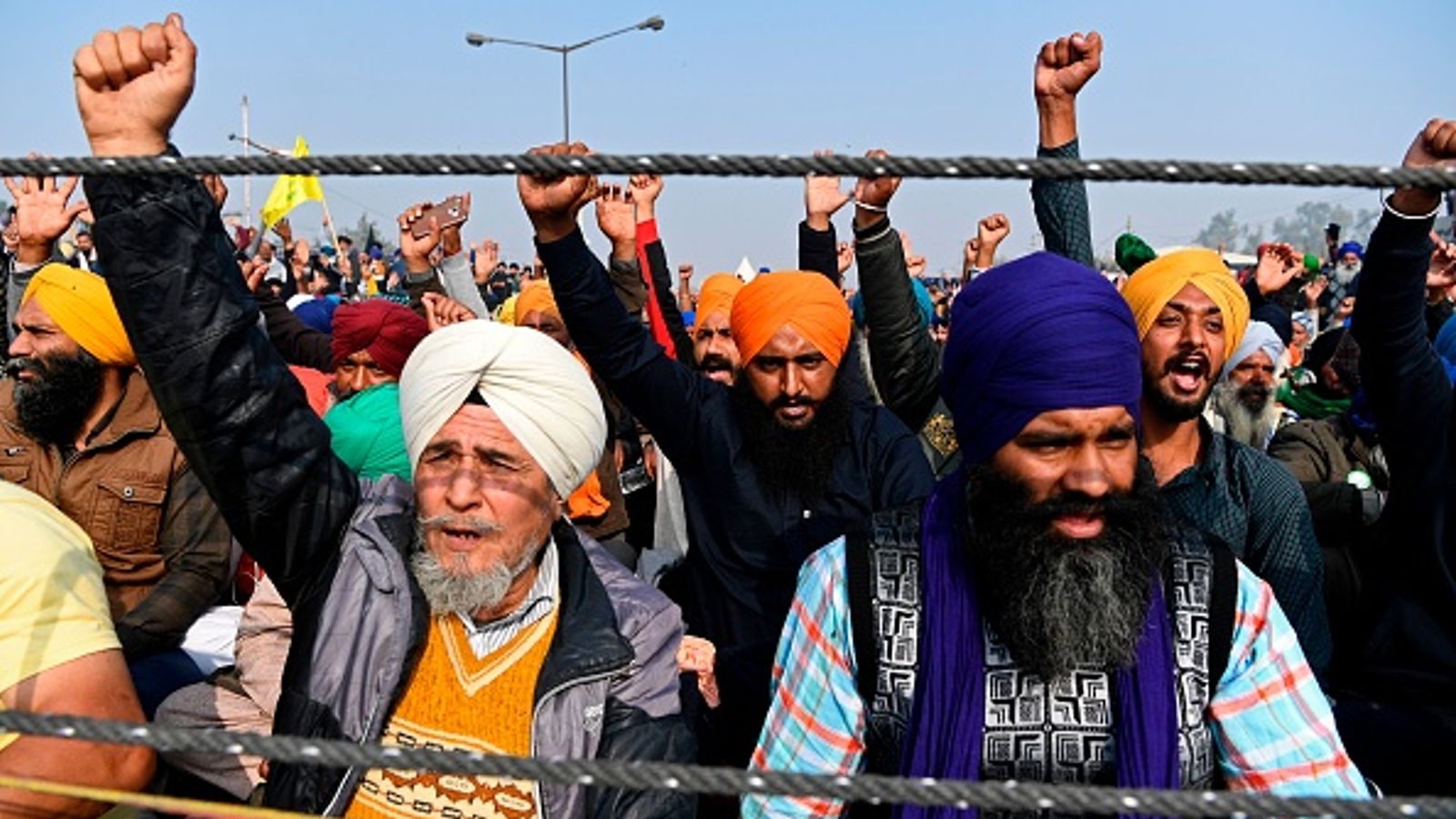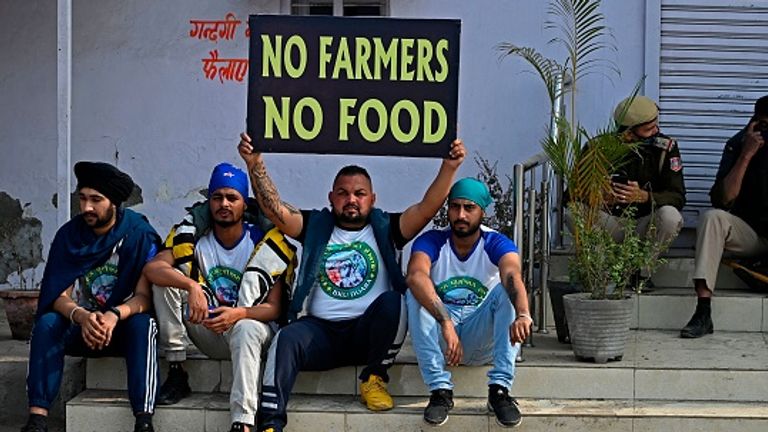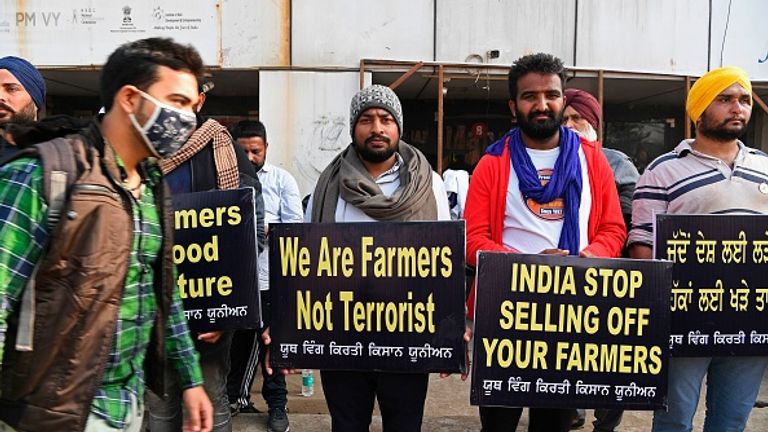Farmers have gone on strike across India in a dispute over new agriculture laws, with thousands continuing to block key roads on the edge of New Delhi in protest.
Heavy security is in place across the country to try to prevent any violence.
In Delhi, the capital, police are out in strength and have warned people against disorder or attempting to force shops and markets to shut.
Unions have appealed for calm but there are reports of protesters scuffling with police and some stone-throwing in Jaipur, Rajasthan.
Protesters have been stopping traffic on national highways, while most trucks and buses have also stayed off the roads after transport unions joined the strike.
Farmers have blocked most roads on the outskirts of Delhi for 12 days, choking the city, after being refused entry to protest.
Trains were also halted in some states due to protests on the tracks by labour unions. Many markets and shops have also remained shut.
Farmers say the three federal laws, which deregulate crop pricing, will reduce their earnings by dismantling the system that guarantees them an income and leave them vulnerable to large private companies.
All major opposition political parties have come out in support of the strike.
The government argues the laws will abolish middlemen and improve farmers’ incomes as they will have a wider market to sell to.
Prime Minister Narendra Modi said the government’s intentions were “as holy as the water of River Ganga” and claimed farmers were “being misled on these historic agriculture reform laws by the same people who for decades have misled them”.
In a televised address on Monday, he added: “Reforms are needed for development. Reforms are very much needed for a new order and to give new facilities.
“We cannot build the next century with the laws of the previous century,”
But the farmers are in no mood to relent – even in this period of a raging pandemic and the oncoming winter thousands are living on the highways and roads.
They are prepared for the long haul, with food and rations for three to four months.
Four rounds of talks between the government and union leaders have so far produced no breakthrough, with a fifth scheduled for 9 December.
Farmers from Punjab and Haryana are leading the protests and are slowly being supported by those from other states, who are making their way to Delhi.
The administration had tried to block their march using concrete barriers, razor wire and even digging up roads.
There were minor clashes at some of the borders when police used tear gas and water cannon.
In Delhi, there are concerns about shortages of food, vegetables and milk due to the blockade.
The issue could become a major headache for the Modi government as farmers and those associated with agriculture make up more than 70 % of the population.
It may only contribute 17% – 18% of GDP, but all issues relating to farmers are sensitive as they have a great influence in voting patterns.
No political party or politician would want to be seen as being anti-farmer.
The Shiromani Akali Dal, one of the oldest allies of the BJP-led government, has pulled out of the alliance over the farm laws.
Although there is no danger to Prime Minister Modi’s government, the longer the issue remains unresolved the more damage it will do to his image.
In the UK, 36 MPs, led by the Labour Party’s Tanmanjeet Singh Dhesi, have come out in support of the farmers, asking Foreign Secretary Dominic Raab to raise the matter with Delhi.
Canadian Prime Minister Justin Trudeau was the first world leader to comment on the issue.
In a video message to mark the 551st birth anniversary of the Sikh leader Guru Nanak, he said: “The situation is concerning and we are all very worried about family and friends.
“I know that’s a reality for many of you. Let me remind you, Canada will always be there to defend the rights of peaceful protest,” he said.
India swiftly summoned Canadian High Commissioner Nadir Patel and told him that the comments were “unacceptable interference” in the country’s internal affairs and if continued would have a “seriously damaging” impact on bilateral ties
At the United Nations, Stephane Dujarric, spokesman for the UN secretary-general, told reporters people “have a right to demonstrate peacefully, and authorities need to let them do so”.





